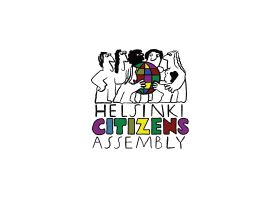With the purpose of effective organization and implementation of human rights protection, HCA Vanadzor addresses information requests to various state organizations, territorial and local government bodies. The information received is used to restore violated rights of citizens who applied to HCA Vanadzor or provide legal advice aimed at enjoyment of their rights. Letters received in response to those requests make it possible to assess observance by state and local self-government bodies of legal norms pertaining to information provision from the perspective of requirements of the Law on Freedom of Information.
HCA Vanadzor has been conducting this study for nine years on end and over these years, due to technological changes, circulation of information has become easier in terms of saving time.
New information technologies significantly cut periods of sending information requests and receiving responses, as the seven-day period envisaged for postal service has also been reduced. It should be recorded that responses to information requests addressed to state organizations, territorial and local self-government bodies were mainly provided with observance of terms established under the RA Law on Freedom of Information. Findings of the Organization’s study present the situation of implementation of the RA Law on Freedom of Information by state and local self-government bodies in 2023 according to the responses provided to HCA Vanadzor.
In 2023, HCA Vanadzor addressed 1046 letters, of which 462 (44,18%) information requests were addressed to state governance, territorial and local self-government bodies (671 letters were addressed in 2022, 258 (38,50%) of which were information requests).
Information requests addressed by the Organization in 2023 mostly concerned the RA Ministry of Defense (17․ 97%), territorial and local self-government bodies (22,73%), RA Prosecutor’s Office and its subdivisions (16,3%) and social and healthcare sphere institutions (4,98%). Thus, information requests addressed to the listed authorities make up 61,05% of the total number of information requests. Noteworthy, the majority of information requests were addressed to the same structures.
Out of 462 information requests addressed to state structures, territorial administration and local self-government bodies in 2023, 306 (66․24%) received timely responses, 100 (21․ 65%) received delayed responses, 56 (12․13%) were not provided with any response.
For the sake of comparison, out of 258 information requests addressed to state structures, territorial administration and local self-government bodies in 2022, 181 (70․16%) were provided with timely responses, 37 (14․35%) were provided with delayed responses, while 40(15․51%) were not provided with any response.
Thus, as compared to 2022, specific weight of the number of information requests that were provided with timely responses in 2023 reduced by 3․ 92%, specific weight of delayed responses increased by 10․ 31%, specific weight of unresponded letters reduced by 3․ 6%.
Read the full report.

